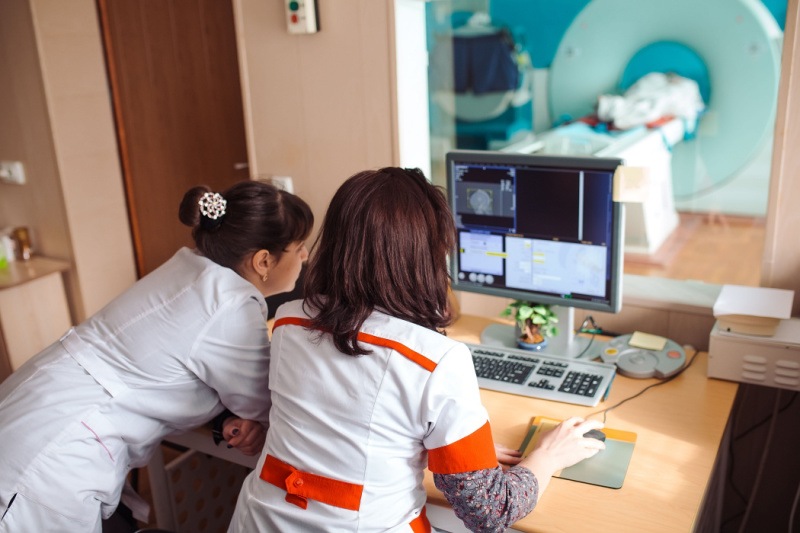Cancer screening tests are essential to detect cancer early, even before there are symptoms, which increases the effectiveness of treatment. These tests, however, do not diagnose cancer but only attempt to detect cancerous cells in your body.
Understanding cancer screening

Cancer screening is defined as identifying cancerous cells in a healthy body through tests, examinations or other procedures that can be applied rapidly and efficiently. Remember, your healthcare provider’s recommendation for a screening test doesn’t mean that you have cancer. If you think you have cancer symptoms, ask a healthcare provider about what you should do.
Importance of early detection
Early diagnosis of cancer allows patients with symptoms to have the best opportunity for successful treatment. It raises the survival rates, offers early care and can also cure cancer completely.
Who should be screened?
 You don’t need routine screening tests for cancer until you are in your 40s. However, you should have screening tests if
You don’t need routine screening tests for cancer until you are in your 40s. However, you should have screening tests if
- You have been diagnosed with a medical condition, such as HPV (Human papillomavirus infection), that can lead to cancer
- You have a history of cancer in your family
Types of cancer screening tests
Here are the most common types of cancer screening tests:
Breast cancer screening tests
Breast cancer is the second most common cause of death among women, and it affects women who are 40 years and above. Studies show that mammograms are the best way to find breast cancer early when it’s easier to treat. Here are some of the cancer screening tests:
- Age 40-49: Women in this age group should have yearly mammograms and breast examinations.
- Age 50-74: Your doctor may recommend you to have a mammogram every two years.
- Occasionally, breast magnetic resonance imaging (MRI) may be used by healthcare specialists to screen an individual who inherited genes with an increased risk of cancer.
Prostate cancer screening tests
Men, who are 45 years and above need to have a digital rectal examination every year through a blood test to check for prostate cancer. If you are 45 or above, ask a healthcare provider if you should have a Prostate-Specific Antigen (PSA) test.
Cervical cancer screening tests
Here are some guidelines for the cervical cancer test:
- Cervical cancer screening tests should begin when you are 21.
- People aged 21-29 should have a pap smear (Papanicolaou) test every three years.
- People older than 30 should have the HPV (human papillomavirus) test every five years, as it can cause cervical cancer.
Lung cancer screening tests
Annual lung cancer screening with low-dose computed tomography (LDCT) is recommended for most individuals between the age group of 50 and 80 years who smoke heavily or have quit smoking in the last 15 years.
While cancer is scary and being screened can make you feel anxious, early detection of cancer can help cure it completely. If you want a cancer screening test, ask a medical expert about the next steps.
Key Takeaways
- Cancer screening involves tests that detect cancerous cells in a healthy body.
- You should have screening tests if diagnosed with a medical condition that may lead to cancer or if there is a family history.
- Common screening tests include those for breast, lung, and prostate cancers.
Stay tuned to the Activ Living Community. Keep up to date with the latest health tips and trends through expert videos, podcasts, articles, and much more in nutrition, fitness, mindfulness, and lifestyle conditions like Asthma, Blood Pressure, Cholesterol, and Diabetes. Activ Living ke saath sahi sehat ki shuruaat ABHIkaro.
You may also be interested in the following blogs:
- Cancer Awareness Day: A Comprehensive Guide To 7 Preventative Strategies
- Early Detection Of Breast Cancer And Its Importance By Dr. Kanchan Kaur
Popular Searches
How to lower blood pressure | Fruits good for liver | Unhealthy foods | Ragi Benefits | Basal Metabolic Rate | Acupressure points for High Blood Pressure | Ayurvedic medicine for blood pressure | How to control cholesterol at home | Homeopathy for Asthma | Biological Age | Home remedies for TB | Natural beta blockers | Negative effects of internet | Types of walking | Blood pressure calculator | Blood sugar calculator | BMI Calculator





 1800-270-7000
1800-270-7000




